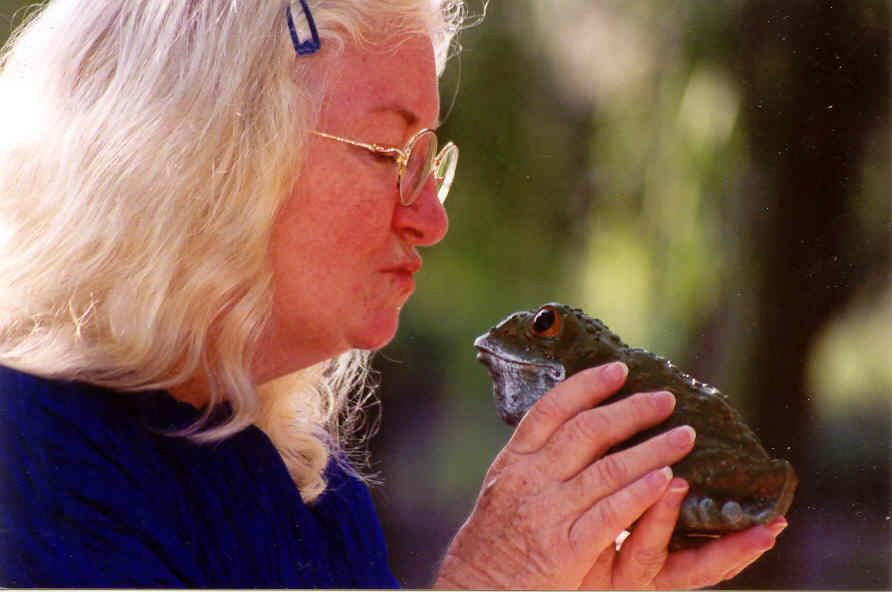Storyteller bringing talents to summer reading event
The tempo of her speech was, in a word, suspenseful. Whether that was how she always spoke, or if it had been learned over years of storytelling, Elizabeth Ellis’ words came at a pace which filled the void between words in just the nick of time. Just when the listener felt compelled to interject, her voice began again, gingerly stepping on the words as if they were piano keys.
The words are well-chosen. Should Ellis suddenly think of a more accurate word to use in mid-thought, she gently corrects herself – straightening the frame of the sentence.
No doubt, it is a talent, and that she had found her calling as a professional storyteller.
That path began many years ago in deep Appalachia.
The maternal side of Ellis’ extended family had always been storytellers. Her grandfather Reverend Isaac Hugh Gabbard was a circuit-riding preacher who traveled throughout Appalachia tending to mountain folks.
At the height of his preaching in the 1940-50s, the roadways in rural America were pretty rudimentary. Gabbard would traverse the mountains, gaps, valleys and hollows of eastern Tennessee, Western Virginia and North Carolina on horseback. He accepted board and lodging as an honorarium for his services. It was a common circumstance for the times.
While lodging in homes throughout Appalachia, Gabbard absorbed an untold number of stories from his hosts. Over time, they became his, and according to Ellis, he could freely spin them, one after another.
Ellis loved the stories. After her father was killed during the Second World War, her grandfather took over fatherly duties for her and her brother.
Her grandfather, like many preachers, was a man of words. He had a large collection of recitations, much of it poetry. He could recite large portions of the Bible as well. He was not the only storytelling influence, however.
Ellis’ Aunt Ida (also on her mother’s side) kept the old fairy tales alive. Two cousins came to practice the art of raconteuring – embellishment of anecdotes.
In this heritage of words Ellis grew up.
It made sense then that Ellis made her way to Eastern Tennessee State University. While pursuing a master’s degree in library science, she was recruited by the Dallas Public Library.
She packed up and headed to Dallas and began telling stories. After several years with the Dallas Library, the then single mother of two gambled her livelihood and resigned to pursue her dream of becoming a professional storyteller. It was quite a gamble.
“I never turned work down,” she recalled, “and that led to some interesting gigs.” One of the more memorable was telling stories during the Peanut Pickers of America annual convention. The convention-goers hired her to tell stories to their wives while the husbands were busy at the convention.
It was a tough go. After one year, with her savings spent, there came a fortuitous sequence of events. A well-established storyteller in the Metroplex asked if she would pick up all his speaking engagements in the area.
It was welcome news and enabled Ellis to begin living the life she had sought, the life of a storyteller.
“Storytelling is the most intimate relationship I can imagine,” she explained. “There is something sacred about it. I can build a whole world with my words and invite you to join me in it for a while.”
Ellis expressed that storytelling is a beautiful exchange. The storyteller tells the story, but each listener imagines – based on their life experiences – the setting and the events.
“The listener becomes a co-creator of the art,” she shared. In the end, she summarized that the listener takes the story with them, while the teller yet retains it in their heart, undiminished.
“There is mystery in that,” she offered.
Ellis has endeavored to share her passion. In addition to regular appearances at the National Storytelling Festival, she has penned four books about the art. Her first, “Inviting the Wolf In,” co-authored with Loren Niemi, offers techniques to address the frightful and/or difficult circumstances within a story.
“From Plot to Narrative” followed in 2012. In it she explores the relationship between what happens in a story (plot) and how a storyteller endeavors to cause the listener to care about what happened (narrative).
In 2014 she published “Every Day a Holiday, a Storyteller’s Memoir.” She has also collaborated on “The Storyteller’s Companion to the Bible: New Testament Women.”
Yet a resident of Dallas, it was a Rural Tour Grant from the Texas Commission on the Arts which is bringing her to Mineola. She enthusiastically supports the initiative which brings her to East Texas.
“We need stories so badly,” she remarked, “the hope, the courage, the laughter, the comfort.”
The nationally-renown storyteller will be sharing some wisdom as a part of the final summer reading program in the Meredith Room of the Mineola Memorial Library on Thursday, July 21 from 2-3 p.m.






